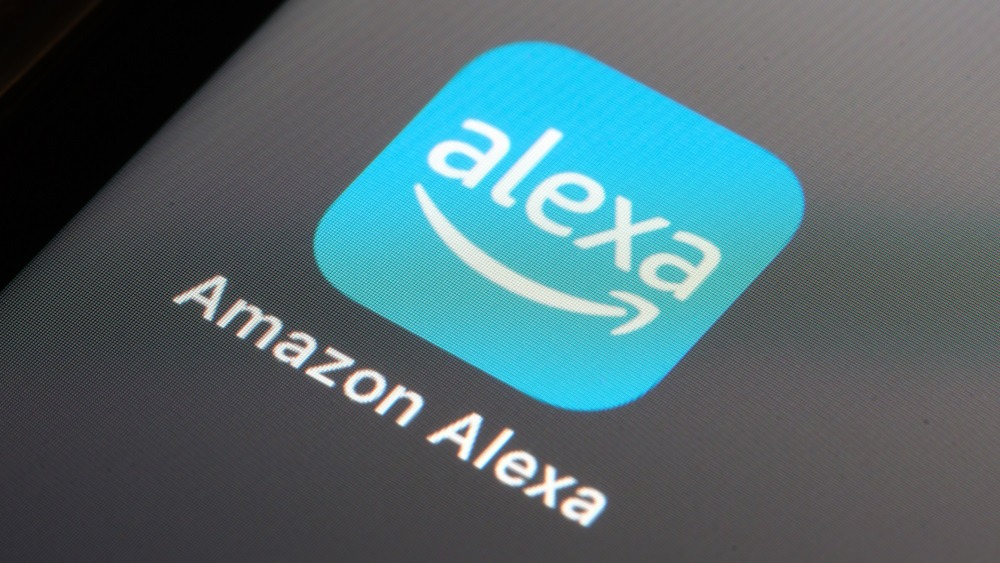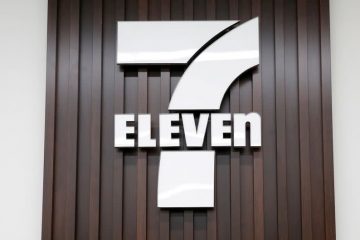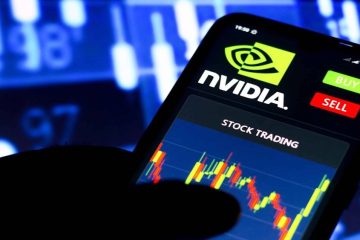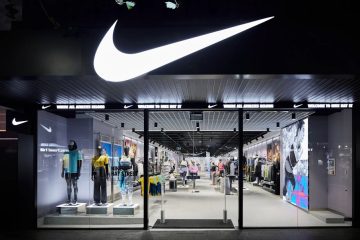Amazon is losing billions on Alexa

Amazon is experiencing significant financial losses due to its Alexa product. Amazon.com’s Echo speakers are a prime example of a business success story that comes with a significant financial setback. Despite being widely purchased, these speakers have proven to be a significant drain on profits.
Chief Executive Andy Jassy is making efforts to address that issue and distance the company from the accounting strategy employed by Amazon that contributed to its creation.
When Amazon introduced the Echo smart home devices with its Alexa voice assistant in 2014, it followed a strategy similar to that of Gillette: offering the razors at a low price in the hopes of generating significant profits from the sale of refill blades.
After ten years, Echo still hasn’t seen any significant returns. Despite the widespread adoption of Alexa-enabled devices by millions of customers, the concept of purchasing goods on Amazon through voice commands to the voice assistant did not gain significant traction.
Customers primarily utilized Echo for free applications, such as setting alarms and checking the weather. “We were concerned about the large number of people we hired and the development of a smart timer,” expressed a former senior employee.
According to internal documents and individuals familiar with the business, Amazon has incurred significant losses in its devices business, encompassing Echos, Kindles, Fire TV Sticks, and video doorbells, amounting to tens of billions of dollars.
According to the documents, Amazon incurred over $25 billion in losses from its devices business between 2017 and 2021. The losses for the years prior to and following that period could not be ascertained.
It’s a significant misstep that the tech giant made during Jeff Bezos’ tenure as founder, and the current CEO Jassy, who assumed leadership in 2021, is now working to rectify. According to insiders, Amazon is set to introduce a paid tier of Alexa in the near future as a strategy to turn around their financial losses. However, there are concerns among the project’s engineers about the effectiveness of this move.
The devices division of Amazon has successfully built multiple profitable businesses and is poised to continue doing so. According to an Amazon spokeswoman, hundreds of millions of Amazon devices are being used by customers worldwide, which is seen as a significant indicator of success. The company refused to grant an interview with Jassy or Panos Panay, the head of devices.
As Jassy attempts to address the issue, he is reconsidering the less well-known metric from the Bezos era within Amazon that sheds light on why Echo and other devices could accumulate significant losses for an extended period without facing significant consequences. Referred to as “downstream impact,” or DSI, it calculates the monetary worth of a product or service by analyzing customer spending within Amazon’s ecosystem following the purchase.
Downstream impact has been utilized throughout various Amazon business lines, spanning from its Prime membership program to its video offerings and music.
The metric was developed in 2011 by a team of experts in the field, including a distinguished individual who later received the Nobel Prize. There were certain cases where the model demonstrated clear effectiveness. Customers who purchase Amazon’s Kindle e-reader, one of the company’s highly profitable devices, tend to be inclined to also purchase ebooks to enjoy on the same device. From a business perspective, ebooks fall under the books category rather than the devices category. However, Amazon executives have justified the Kindle team’s decision to include ebook revenue when evaluating the overall worth of their product.
In a similar vein, a portion of the revenue generated from advertisements shown on Fire TV streaming devices is also attributed to Fire TV revenue.
Amazon devices have the advantage of generating direct revenue through the sale of subscriptions that are linked to the product. A significant majority of customers who purchase smart-camera doorbells from Ring, an Amazon device acquired by the company in 2018, opt for security subscriptions.
According to insiders in the devices business, the concept of downstream impact did not hold up in certain situations, particularly with Echo devices.
Similar to the financial metrics that Amazon and other companies publicly disclose, the estimation of downstream impact is an internal measure that lacks scientific precision.
Typically, Echo and other devices are sold at or below their manufacturing cost. During internal pitch meetings with senior management, the devices team would confidently present a high-end estimate of revenue generated from downstream impact, according to sources. The team heavily relied on the metric to justify costs associated with Echo and other devices, as well as the expanding size of the staff dedicated to the business. At its peak, the team had over 15,000 employees working across all its products.
Former executives have noted that the system allowed divisions to count the same revenue multiple times. For instance, if a customer were to purchase an Echo device along with Amazon’s Fire TV streaming stick, and subsequently subscribed to Amazon Prime, both the Echo team and the Fire TV team could potentially receive a portion of the revenue generated by the Prime subscription.
Another factor that contributed to the improved financial performance of Echo devices internally was the revenue generated by Amazon Music. Amazon Music is a subscription-based music streaming service that competes with Spotify, offering a monthly subscription for $10.
The devices team also asserted their share of shopping revenue, as users have the option to use Alexa for ordering or reordering goods. However, former employees from the Alexa shopping team argue that this does not significantly contribute to e-commerce revenue.
The Amazon spokeswoman mentioned that a significant portion of Echo owners have utilized it for shopping, but she refrained from providing details regarding their purchasing habits or frequency.
“DSI was a crucial factor in sustaining us throughout the years,” expressed a former Amazon employee with extensive experience working on Echo.
Amazon’s devices operation was a passion project of Bezos, and the Alexa voice assistant and the Echo speakers, through which it communicated, drew inspiration from his fascination with the spaceship computer in “Star Trek.”
“When launching products in the past, there was no need to establish a profit timeline for them,” stated a former devices executive with extensive experience. We needed to ensure widespread adoption of the system in people’s homes in order to achieve success. Embrace innovation and prioritize profitability afterwards.
In order to accomplish this, the team had to ensure that prices remained at a competitive level. Amazon occasionally offered free versions of the smart speaker as part of promotions in order to expand their user base.
“We don’t need to generate profit upon selling you the device,” stated Dave Limp, former senior vice president of Amazon devices, in a 2019 interview with The Wall Street Journal. Our revenue is generated through the active utilization of the device.
Amazon faced fierce competition from major rivals, including Google, whose smart speakers were priced significantly lower. Both companies were striving to secure a presence in as many households as they could. We kept a close eye on their pricing at all times. “There would be discussions around the water cooler, questioning if our goal is to outdo Google,” mentioned a former member of the Echo team.
According to insiders, Bezos made sure to support the devices team, despite increasing losses, by maintaining investments and expanding the staff.
In 2018, devices experienced a loss of over $5 billion. The company was investing heavily in the development of various devices, including an in-home robot called Astro, which was designed to function as a smart butler. Introduced in 2021 and available exclusively by invitation, Astro comes with a hefty price tag of $1,600 and has incurred over $1 billion in development expenses. In a surprising move, Amazon has decided to discontinue its Astro for Business product this month.
An Amazon spokeswoman refuted any claims that Bezos protected the devices business or gave it preferential treatment compared to Amazon’s other ventures.
Despite Bezos’ famous philosophy of embracing risk and learning from failure, the company incurred significant losses over a long period of time. Customers were not utilizing the device for shopping, and efforts to promote services like security through Alexa also struggled. After facing user dissatisfaction, Amazon decided to restrict the use of smart speakers for advertising purposes.
According to internal documents, device losses surged to over $6 billion in 2019. However, the device team unveiled new products, including the Luna gaming streaming service along with its accompanying devices and the Halo fitness tracker.
Jassy, who previously led Amazon’s highly profitable cloud-computing business, is known for his keen focus on maximizing profits.
Shortly after assuming leadership from Bezos three years ago, he conducted a thorough analysis of Amazon’s various business segments, including retail, logistics, and advertising, with a focus on profitability. He focused on the business of devices that were not making any profit, as reported by the Journal.
Teams working on new devices without a clear path to profitability were dissolved. Individuals involved in the development of established products that were not generating revenue or profits were advised to explore new sources of income. According to individuals familiar with the discussions, Jassy frequently urged leaders to showcase a clear path to profitability without relying on downstream impact as a fallback.
In October 2022, Amazon discontinued Amazon Glow, a video-calling gadget that was not generating profits from each sale—and was not able to recover the losses even when customers used it or paid a fee for content. The product was introduced just one year ago. Jassy had emphasized the importance of ensuring profitability and considering the downstream impact to the team.
The Amazon spokeswoman stated that the company intends to assess the effectiveness of its businesses by evaluating their contribution to the overall growth of the company.
In late 2022, Amazon’s senior team implemented measures to reduce corporate employees and improve profitability throughout the company. Devices were a primary target for the reductions.
Several devices were deactivated in the previous year, including the Halo, a fitness wearable created by Amazon. In late 2023, Limp, the former head of Amazon devices, departed from the company after a tenure of over 13 years. In a note to employees, he explained that his optimism about the devices and services business remains unchanged.
Jassy’s team focused their attention on Alexa and the Echo device. Although the technology powering Echo has gained immense popularity with over 500 million Alexa-enabled devices worldwide, Jassy emphasized the importance of discovering methods to generate revenue from the device and its technology.
A team was formed under the leadership of Amazon vice president Heather Zorn to develop a method for implementing a fee for Alexa users. The group, code-named “Banyan,” has been diligently working on developing a product called “Remarkable Alexa.” This new product is set to be built on a completely new technology stack and is expected to have a wider range of capabilities compared to the current version of Alexa found on Amazon devices, as per individuals familiar with the matter. Business Insider has previously provided information about Remarkable Alexa.
With the new technology, users can effortlessly control functions such as smart home devices by simply using their voices, eliminating the need to open an app. It will also utilize generative artificial intelligence to a greater extent than the current Echo experience. In a podcast interview in December, Bezos alluded to a forthcoming iteration of Alexa. “Alexa is poised to become significantly more intelligent,” he informed the host.
According to one of the people, Zorn’s team is expected to release the new Alexa subscription service this month. They are currently in the process of determining the appropriate pricing for the service.
One individual on the team expressed doubts about the demand for an additional subscription service in a time when many people are opting out of traditional cable packages. This skepticism arises from the fact that individuals already pay for various subscriptions like Netflix, Spotify, and even Amazon’s own offerings such as Prime and Amazon Music. Some members expressed concerns about the perceived lack of value in the new Alexa product.
“The technology isn’t quite up to par, but they are under pressure to meet their deadline,” the individual stated.
According to an Amazon spokeswoman, Amazon is making significant progress towards developing the most advanced personal assistant in the world. She emphasized that the potential of this project goes beyond what can be measured on a balance sheet.










